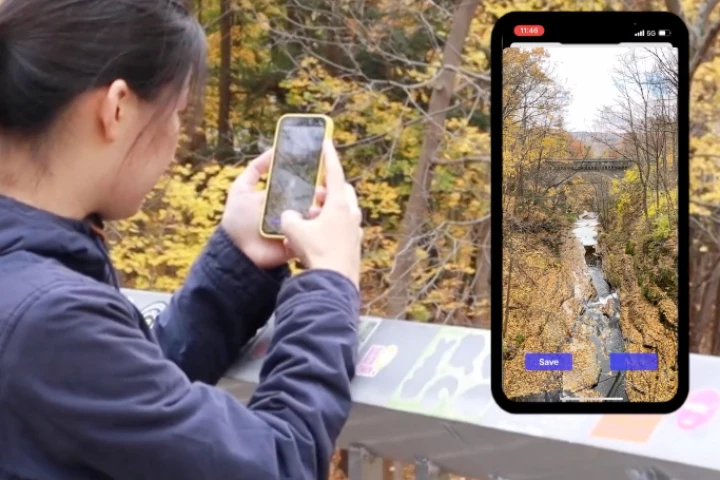Cornell University
-
Most robots use electric actuators, but this little fella packs a lot more punch. Researchers have created a new type of minuscule combustion engine that gives this tiny frog robot explosive leaping abilities, as well as fine movement control.
-
Casual bird buddies and ornithology obsessives alike can now trek to far corners of the globe and identify any feathered friend they find – as long as they have their phone with them. What's more, the Merlin app can now identify nearly every species.
-
Hand edema, which is a swelling of the fingers due to the accumulation of fluid, is typically treated via a hand massage performed by a therapist. A new finger-massaging glove, however, may offer a less costly and more accessible alternative.
-
Some people lack the power of speech, while others may find themselves in noisy settings where speaking voice commands out loud just won't work. Such folks might have use for the EchoSpeech glasses, which read their user's silently spoken words.
-
The heart has long been called our "ticker." A new study shows why that might be the case even more than we previously imagined. Researchers have demonstrated that our perception of time shifts with the length of our heartbeats.
-
Currently, in order to see what type of bacteria (if any) are present in a liquid sample, bacterial cultures have to be grown in a lab over the course of several hours – or even a few days. A new laser technique, however, works in just minutes.
-
Although there are things we can do to reduce stress, most involve stopping what we're doing – which isn't always possible. A new study, however, suggests that the automated brushing of hairy skin is an effective form of passive stress reduction.
-
When most people think of a grain crop, they picture a field full of one type of plant. A new study, however, indicates that crops made up of mixed grains are both more resilient and higher-yielding than their conventional counterparts.
-
In the commercial production of apple juice and cider, large quantities of fibrous waste – known as pomace – is generated as a byproduct. And while that material is currently just discarded, new research suggests that it could be used to boost the health of chickens.
-
While time-lapse videos can be striking, creating them involves leaving the camera in one place for the duration of the shoot. A new app allows such videos to be recorded on a smartphone, which can be moved and used for other things between shots.
-
Wearable technology is capable of tracking various measures of human health and is getting better all the time. New research shows how this could come to mean real-time feedback on posture and body mechanics from a smartwatch.
-
A new paper speculates future global food production problems could be solved by growing protein-dense microalgae in coastal aquaculture farms. The modeling boldly projects 100% of global protein demands could be provided by microalgae in 2050.
Load More











